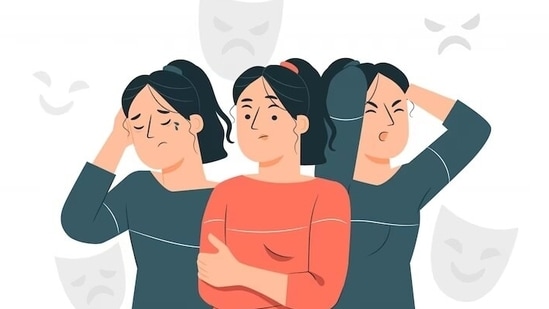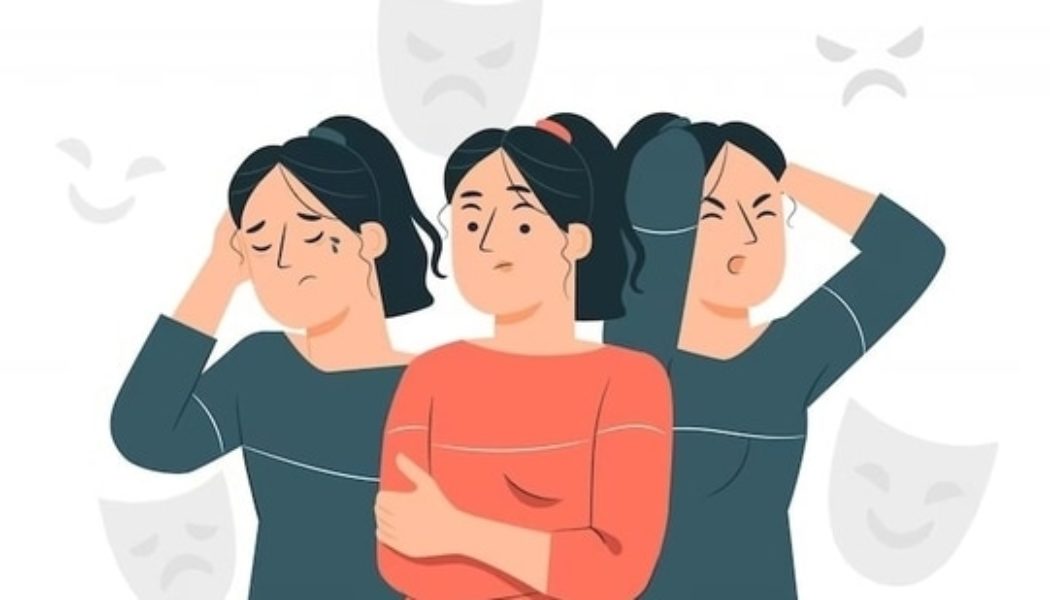Mania and depression symptoms in bipolar disorder can be managed by introducing appropriate lifestyle changes.
Living with bipolar disorder can be challenging as a person suffering from it goes through extreme shifts in mood. One can find themselves in either of the two phases – being too happy or too withdrawn. A person during maniac episodes may be over-excited about life, bursting with energy, joyful, doing new things – at times irrational, talking too much and behaving impulsively. The same person during the depression phase, may withdraw from joyful activities, isolate self, be indecisive, suffer from low energy and lose sleep. In between these two extremes, there are phases when their mood could be absolutely normal. (Also read | Bipolar disorder: Warning symptoms you should know; types, causes, treatment)

It is important to make appropriate lifestyle changes when suffering from bipolar disorder to help manage moods. Mania can lead to poor judgment, risk taking behaviour and disinhibition which may make a person prone to accidents or financial loss. On the other hand, depression can make one suicidal and lonely.
“Patients living with bipolar disorder will respond to lifestyle changes otherwise. What works for one person may not be effective for another. It is vital for an individual to find what works best for them. It is also important to take medicine precisely as mentioned in the prescription. A person should not stop taking medicine if they start feeling healthier. This is just a sign that the treatment is working well for them, says Dr Dhruv Zutshi, Senior Consultant, Neurology, Fortis Hospital, Vasant Kunj.
Symptoms of mania and depression in bipolar disorder
Bipolar disorder is a mental health ailment characterised by significant alterations in mood that involves extreme highs (mania or hypomania) and lows (depression). The depressive episodes are characterised by persistent, pervasive sadness of mood along with a lack of interest or pleasure in usual activities. On the other hand, manic or hypomanic episodes are characterised by excessive cheerfulness or uncharacteristic irritability and increased energy. These mood changes may impact an individual’s sleeping habits, energy levels, daily activities, judgment, behaviour, and cognitive abilities, says Dr Sonali Bali, Consultant – Psychiatrist, Paras Health, Gurugram.
What to do during mania and depression
“Before applying lifestyle changes for managing bipolar disorder, it’s important to understand an individual’s personality, severity, and exact type of the disorder and their psycho-social environment. In general, proper activity scheduling (record of daily activity as per specific time slot) is required to maintain emotional regulation. If a person is having depressive disorder, then there should be activities to activate their physical energy and brain chemicals like walking, cycling, team play activities, etc. It’s advisable to avoid any aloof activity during this phase. If a person is having a manic phase, then grounding should be the main goal in lifestyle changes for which meditation, taking care of plants, gratitude journaling, etc can be useful,” Dr Shweta Sharma, Clinical Psychologist & Founder, Mansa Global Foundation for Mental Health.
“Taking proper sleep is required (7-8 hours) in both states. Maintaining regular Psychotherapy sessions is a must. Learning social skills is also important in their lifestyle. Regularly journaling about your small achievements before sleeping on day-to-day basis. Keep a check on your triggers and reach out for help while doing all this. There is one important point that needs to be in mind, meditation or yoga is not the best advice for depressive episodes but helpful for the manic phase, adds Dr Sharma.
Lifestyle changes for bipolar disorder
1. Maintain a regular sleep schedule
“Good and enough sleep is crucial for individuals with bipolar disorder. Lack of sleep or irregular sleep patterns can trigger manic or depressive episodes. Try to maintain a consistent sleep schedule, aiming for seven to eight hours of sleep per night,” says Dr Jyoti Kapoor, Founder-Director and Senior Psychiatrist, Manasthali.
2. Regular exercise
“Exercise is known to have many mental health benefits, including reducing symptoms of anxiety and depression. Regular physical activity can also help manage mood swings and improve overall well-being,” says Dr Kapoor.
3. Balanced diet
“A balanced diet can help stabilise mood and improve overall health. Focus on eating nutrient-dense foods like fruits, vegetables, whole grains, lean proteins, and healthy fats. Limit or avoid processed and sugary foods,” says Dr Bali.
4. Manage stress
“Practicing relaxation techniques, such as yoga or meditation, can help reduce stress and anxiety,” says Dr Malasa Gujjar, Consulting Physiologist, Jindal Naturecure Institute, Bangalore.
5. Avoid drugs and alcohol
“Substance use can interfere with bipolar disorder treatment and increase the risk of relapse. Avoiding drugs and alcohol can help stabilize mood and reduce the risk of manic or depressive episodes,” says Dr Kapoor.
6. Keep a mood journal
“Keeping a journal can help you track your mood swings, identify triggers, and monitor the effectiveness of your treatment plan. Share your mood journal with your mental health provider,” says Dr Bali.
7. Structured timetable
“People with bipolar disorder tend to forget what they were doing or what is next in their schedule. Keep a track in your diary or mobile as reminder,” says Dr Zutshi.
8. Participate in your treatment
“Learn about your illness, clarify your doubts from your doctor, take the prescribed medication and meet your psychiatrist regularly,” says Dr Bali.
9. Learn about your personal triggers
“There are some instances which will be noticed by you or your family member or friends. It is important to learn about them and take necessary action,” says Dr Zutshi.
10. Take support
“Bipolar disorder can be a challenging condition to manage alone. Take support from friends, family, or a mental health professional. Joining a support group can also be helpful in connecting with others who are going through similar experiences,” says Dr Kapoor.
“Regular therapy sessions can provide support and help individuals and their caretakers learn coping skills to manage bipolar disorder symptoms,” says Dr Gujjar.









